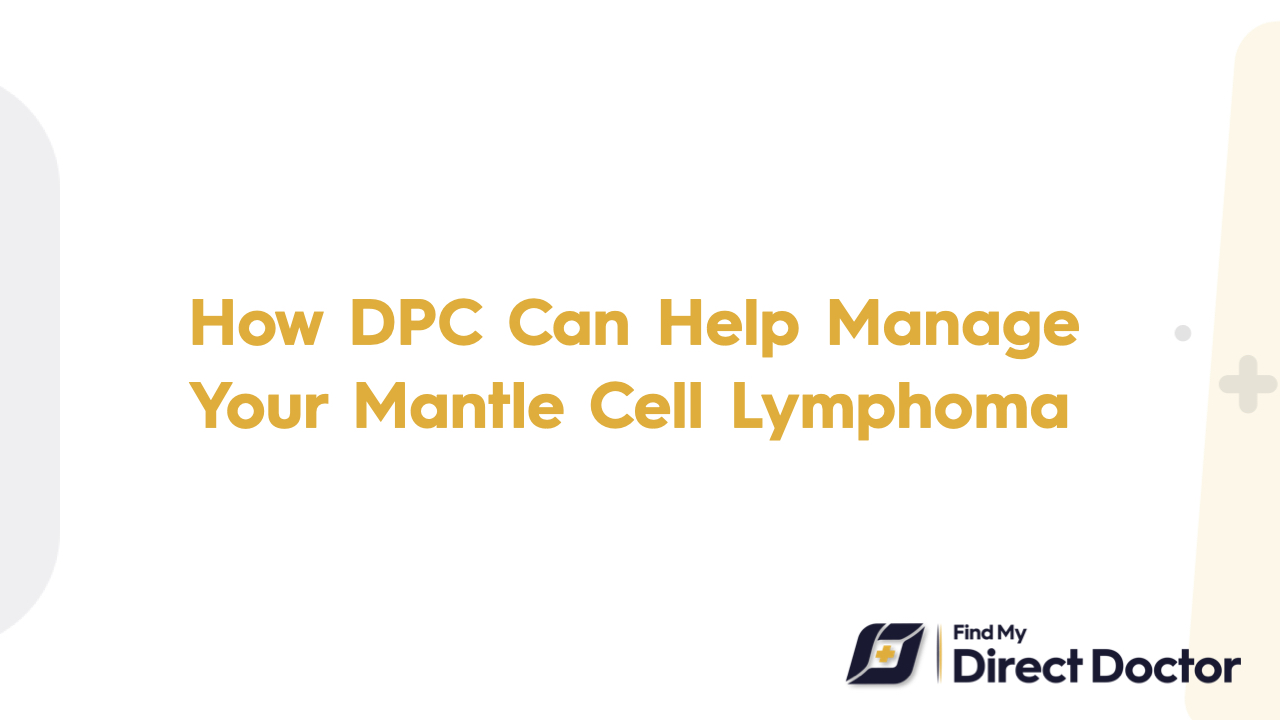



A uncommon and aggressive kind of non-Hodgkin lymphoma, which is a malignancy that affects the lymphatic system, a component of the immune system, is called mantle cell lymphoma (MCL). The lymph nodes' B cells, namely those from the mantle zone that envelops the follicles, are the source of MCL. Additional bodily parts that may be affected by this kind of lymphoma include the gastrointestinal tract, bone marrow, and spleen. Early detection and treatment are essential because mantle cell lymphoma progresses quickly and is frequently detected at an advanced stage.

Swollen lymph nodes, inexplicable weight loss, fever, night sweats, and exhaustion are common symptoms of MCL, though they might vary based on the location and severity of the illness. If the lymphoma affects the digestive tract, some people may have gastrointestinal symptoms such as bloating or abdominal pain. Patients may experience skin rashes or bone discomfort in more severe situations. People should seek medical assessment for an accurate diagnosis and prompt intervention because the symptoms can be confused with those of other diseases.
Because Direct Primary treatment (DPC) offers individualized, continuous treatment that is patient-centered, it can be extremely important in the management of mantle cell lymphoma. DPC makes it possible to closely evaluate symptoms, therapeutic side effects, and general health status in the setting of MCL. By taking the time to learn about the patient's medical background, way of life, and specific requirements, DPC providers are able to create a care plan that takes into account the psychological as well as the physical challenges of having cancer.
DPC can supplement professional oncology care by providing ongoing support and coordination, but it cannot replace it. Treatments for MCL patients frequently involve immunotherapy, chemotherapy, and stem cell transplants. To help patients manage side effects, stick to treatment plans, and keep an eye on their health between oncology visits, DPC providers can collaborate with oncologists. Furthermore, DPC makes it possible to respond to health issues more quickly, guaranteeing that patients receive rapid care plan modifications as necessary.
The continuity of care that DPC provides is one of its main advantages for MCL patients. Frequent monitoring is often necessary during cancer therapy in order to manage symptoms, avoid problems, and resolve side effects. DPC gives patients a direct line of communication with their healthcare professional at any time, removing the need for lengthy wait times. This is especially crucial for people with MCL since they can have unexpected health changes that need to be addressed right away.
A more cooperative approach to healthcare is also made possible by DPC. DPC practitioners can spend more time with patients, talking about treatment options, managing side effects, and lifestyle changes because they typically have fewer patients. Stronger relationships between patients and providers are made possible by this kind of individualized care, which can lessen the emotional and psychological strain that frequently comes with receiving a cancer diagnosis. Additionally, DPC providers can act as their patients' advocates, making sure they are promptly referred to specialists or other medical treatments when necessary.
The goal of personalized treatment for DPC patients with mantle cell lymphoma is to create a thorough care plan tailored to their individual requirements. This strategy incorporates support for managing any potential side effects or consequences in addition to the medical therapies required to combat the cancer. To guarantee the greatest results, DPC providers keep an eye on the patient's general health, including their dietary requirements, pain management, and mental stability. They then modify the treatment plan as necessary.
DPC providers can help with daily symptom management and quality of life in addition to collaborating with specialists. For example, they can give stress-reduction strategies, counseling, and resources for mental health support, as well as advice on how to modify one's lifestyle. Because every mantle cell lymphoma case is different, DPC's individualized approach guarantees that every facet of a patient's health is taken into account, enabling them to better manage the difficulties of having cancer and enhance their general wellbeing. The course of treatment for someone with mantle cell lymphoma can be greatly impacted by this proactive and holistic approach to therapy.
Previous Post